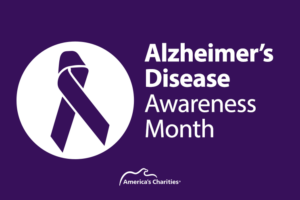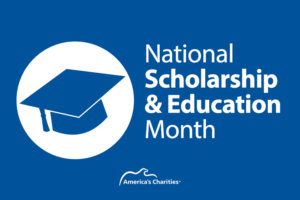Capital Caring | November 15, 2019
Capital Caring Health: Advanced Home Care & Hospice For All Ages at All Times
Capital Caring provides the highest quality advanced illness care with Dignity, Respect, and Compassion.
One of the first and largest nonprofit hospices in the United States, Capital Caring has provided hospice and palliative care to more than 123,000 patients and their families across Virginia, Washington, DC, and Maryland for more than 40 years– regardless of a person’s ability to pay — as well as grief counseling for families and for the community at large.
Every day, our expert staff of health professionals — including physicians, nurses, certified nursing assistants, social workers, chaplains, and trained volunteers — care for more than 1,200 people living with advanced illness and their families.
 Medicare, Medicaid and private insurance cover a portion of the expenses for health care of covered individuals, however there is a great deal of support services we provide which are unfunded other than by generous donations from our community.
Medicare, Medicaid and private insurance cover a portion of the expenses for health care of covered individuals, however there is a great deal of support services we provide which are unfunded other than by generous donations from our community.
Capital Caring’s Current Programs
- Hospice Care: Our coordinated care and services include medical, emotional, spiritual and practical support, designed to meet our patient’s disease and symptom management needs, provided by a team of nationally respected doctors and nurses. We work closely with patients and families to determine the best place for patients to receive our services – at home, one of our four inpatient facilities, the hospital, or nursing facility. Nearly 95% of all hospice patients served were cared for in their home. Last year alone we served 7,451 patients in need.
- Advanced Illness Care: Capital Caring physicians provide pain and symptom management for chronic, seriously ill patients not yet eligible for hospice or who do not want hospice. Our physicians make house calls, consult at hospitals and clinics, and can coordinate with the patient’s own primary care physician. Last year, 2,251 patients received care through our Advanced Illness Care program.
 Pediatric Hospice Care: Capital Caring specializes in the care and treatment of children with chronic, advanced illness, including infants, through expert management of pain and other symptoms. Children experience a variety of complex illnesses. Illnesses seen in adults can act differently in children because of their unique anatomy and physiology. Therefore, all specialized medical care must be tailored to meet their needs. A partner with Children’s National Medical Center’s (CNMC) PANDA program, our family-centered, interdisciplinary team offers medical, spiritual, and emotional support during a most critical and vulnerable time. In 2018, our team served 45 children through our Pediatric Hospice program.
Pediatric Hospice Care: Capital Caring specializes in the care and treatment of children with chronic, advanced illness, including infants, through expert management of pain and other symptoms. Children experience a variety of complex illnesses. Illnesses seen in adults can act differently in children because of their unique anatomy and physiology. Therefore, all specialized medical care must be tailored to meet their needs. A partner with Children’s National Medical Center’s (CNMC) PANDA program, our family-centered, interdisciplinary team offers medical, spiritual, and emotional support during a most critical and vulnerable time. In 2018, our team served 45 children through our Pediatric Hospice program.- Point of Hope (POH) Counseling: At Capital Caring, we provide one-on-one counseling sessions, support groups and special grief education programs to not only help our Capital Caring hospice families, but to assist members of the larger community struggling with loss, including children. Over the last year, Capital Caring counselors served 5,339 clients through this service. Our services include one-on-one and family counseling sessions, psycho-social support groups, and specialized bereavement programs targeting specific populations.
- Inpatient Care: Capital Caring operates four in-patient care centers across the DC Metro Area: The Halquist Center in Arlington, Virginia; The Adler Center in Loudoun County, Virginia; Northeast DC Center at Providence Hospital; and Greenbelt Center in Prince George’s County, Maryland. Each site provides 24-hour care and medical support for hospice patients whose pain and other symptoms require management not possible at home. Through these intensive support sites, Capital Caring served 1,659 patients in 2018.
- Supporting Military-Connected Families: The DC region is home to the largest concentration of military-connected families in the country and service members and their families make up a significant portion of the families and individuals we serve. As a result, over the last year we have strengthened our commitment to veterans and their families, through the expansion of existing wrap around services and programs designed to access critical health and social services, combat isolation, provide additional in-home support, facilitating acquisition of available VA benefits, including Disability Compensation, Veterans/Surviving Spouse Pension with Aid and Attendants, Homemaker Home Health Aide Program, and easing end-of-life transitions.
Support Capital Caring through your employee giving program:
As a donor, you can support Capital Caring by donating to them through your employer’s workplace giving program (CFC#39664 if you’re a military or federal employee participating in the Combined Federal Campaign). Payroll pledges made through employer-sponsored charitable giving programs represent a cost effective and near effortless way to support your favorite charities.
As Capital Caring’s workplace giving partner, America’s Charities can help your company design and implement a program centered on supporting their work – through workplace giving campaigns, employee fundraising, cause-focused signature programs, volunteerism, donation drives, matching gifts, Dollars-for-Doers, In-Kind Giving and other employee engagement and philanthropic initiatives. Click here to request a demo and learn how we can help you do this.
Get Resources and Insights Straight To Your Inbox
Explore More Articles
Open Position: Customer Service Coordinator (Remote-Part Time)
Position Title: Customer Service Coordinator (Remote – Part Time) Department: Charitable Funds Management Solutions We are a non-profit charitable organization looking for skilled individuals who…
Read ArticleGet Resources and Insights Straight To Your Inbox
Receive our monthly/bi-monthly newsletter filled with information about causes, nonprofit impact, and topics important for corporate social responsibility and employee engagement professionals, including disaster response, workplace giving, matching gifts, employee assistance funds, volunteering, scholarship award program management, grantmaking, and other philanthropic initiatives.





